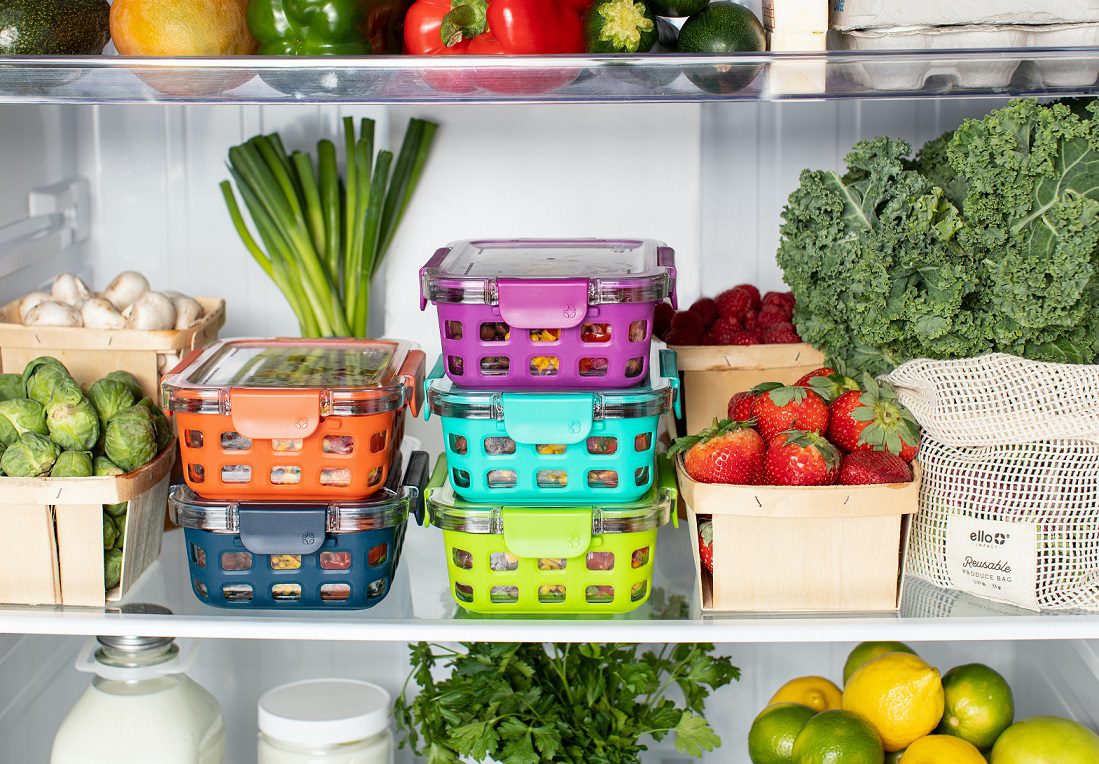When you go about your weekly shop, do you think about how you’ll be storing the food you buy when you get home? Storing your food safely is very important for you and your family’s health, and it’s a great way to avoid unnecessarily wasting food.
From our Food Waste Survey, which was completed by over 1,850 residents, 45% of people told us their food goes off before the use by date/best before dates.
Get news and info from your local council – sign-up for email bulletins.
As well as this, just under 35% said not everyone in their household eats all their meals, just over 15% cook too much, and just over 15% said family members change their plans (e.g. don’t turn up for dinner).
So there’s definitely room for improvement.
Cllr David A Bithell, said: “Thinking about things like temperatures, the different materials you can store food in, and whether the food can be frozen are all ways that will help to keep you safe and ensure you get the most from your food items. No one wants to throw away food that they’ve paid good money for, so it’s a really good idea to try and understand the best ways to store the different types of food you buy to avoid wastage.”
Keeping food in your fridge
If the label says ‘keep refrigerated’, make sure you do keep the food in the fridge! If the food isn’t labelled with any storage instructions and it’s a type of food that goes off quickly, you should put it in the fridge and eat it within two days.
Some jars and bottles will need to be kept in the fridge once they’ve been opened too…check the label and follow storage instructions.
Some other tips for storing food in your fridge are:
- when preparing food, keep it out of the fridge for the shortest time possible, especially when the weather or the room is warm
- if you’ve made some food (such as a sandwich or a cold dish) and you’re not going to eat it straight away, keep it in the fridge until you’re ready to eat it
- if you’re having a party or making a buffet, leave the food in the fridge until people are ready to eat (you shouldn’t leave food out of the fridge for more than four hours)
- cool leftovers as quickly as possible (ideally within two hours) and then store them in the fridge
- eat any leftovers within two days, except for cooked rice, which you should eat within one day to help avoid food poisoning
Meat
It’s important to store meat safely to stop bacteria from spreading and to avoid food poisoning. You should:
- store raw meat and poultry in clean, sealed containers on the bottom shelf of the fridge, so they can’t touch or drip onto other food
- follow any storage instructions on the label and don’t eat meat after its ‘use by’ date
- when you have cooked meat and you’re not going to eat it straight away, cool it as quickly as possible and then put it in the fridge or freezer
- keep cooked meat separate from raw meat
Freezing food
You can keep food safely in the freezer for years as long as it stays frozen the whole time. But the taste and texture of food changes if it’s frozen for too long, so you might well find that it’s not very nice to eat.
You can check any instructions on food labels or in your freezer’s handbook (if you don’t have this anymore, you might be able to find it online) to see how long food should be frozen.
It’s safe to freeze most raw or cooked foods providing you:
- freeze it before the ‘use by’ date
- follow any freezing or thawing instructions on the label
- thaw it in the fridge so that it doesn’t get too warm, or, if you plan on cooking it as soon as it’s defrosted, you could defrost it in a microwave
- try to use it within one to two days after it’s been defrosted – it will go off in the same way as if it were fresh
- cook food until it’s steaming hot all the way through
When frozen meat and fish (and some other foods) thaw, lots of liquid can come out of them. If you’re defrosting raw meat or fish, this liquid will spread bacteria to any food, plates or surfaces that it touches. Keep the meat and fish in a sealed container at the bottom of the fridge, so that it can’t touch or drip onto other foods.
Always clean plates, utensils, surfaces and hands thoroughly, after they have touched raw or thawing meat, to stop bacteria from spreading.
If you defrost raw meat or fish and then cook it thoroughly, you can freeze it again, but remember never reheat foods more than once.
Found this information useful? Look out for Part 2 soon.
[button color=”” size=”large” type=”square_outlined” target=”new” link=”https://public.govdelivery.com/accounts/UKWCBC/subscriber/new?topic_id=UKWCBC_5″]SIGN UP[/button]









